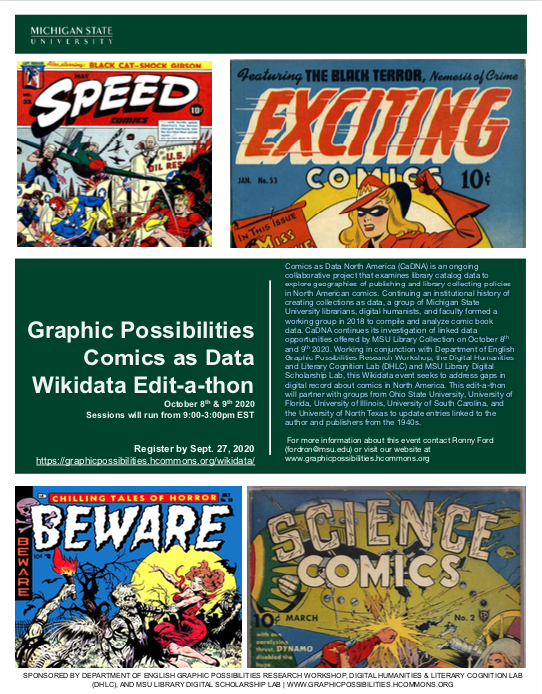2018 UF Conference on Comics and Graphic Novels
“ImageTech”
On April 6th-8th, 2018, UF will be hosting its 15th annual Conference on Comics and Graphic Novels, “ImageTech: Comics and Materiality” in Gainesville, Florida.
Call For Papers
The Graduate Comics Organization at the University of Florida invites applicants to submit proposals to the 15th UF Conference on Comics and Graphic Novels, “ImageTech: Comics and Materiality.” The conference will be held from Friday, April 6 through Sunday, April 8, 2018.
The medium of comics has always prompted comics creators to work in concert with, and push against, the technologies through which their works are produced and distributed. As print and digital technologies have become more sophisticated, accessible, and affordable, some comics creators have embraced innovative digital technologies, while others prefer pen and ink on paper. From the meticulous series of woodblock prints, to the humble black-and-white photocopied zine, to the decade-long online epic, comics are fundamentally concerned with technologically-determined formats and materiality.
The goal of this conference is to not only explore relationships among comics and various technologies, but to interrogate the digital/analog divide in comics creation and scholarship. How does form dictate content, and vice versa? How do digital platforms impact engagement and accessibility? How do changes, improvements, and advances in technologies push comics creators and scholars to reevaluate our understanding of comics as a medium? Why do some comics creators deliberately adhere, or return, to analog technologies? In short: how do we understand and approach the material considerations of comics?
Possible topics include, but are not limited to:
- Digital comics (comics created and/or hosted/distributed digitally)
- Print forms and “legitimacy” (monetization, privileged status of print)
- Comics thematically or visually concerned with technologies (steampunk, cyberpunk)
- Comics incorporating elements of other media (flash animation, animated gifs)
- Augmented Reality (AR) and Virtual Reality (VR) comics
- Comics made using unusual/older technologies (wood-block prints, paper cut-outs, collage, found materials) and/or creators’ use of disparate technologies
- Zines or other periodicals that incorporate comics
- Transitions in specific comics series from print to digital or from digital to print (potential problems/losses, transitioning forms as “translation,” introduction or removal of page turns and/or gutters)
- Impact of social media on proliferation of image-texts (reblogs, memes, remixes, fandom/fan art, fan/composer dialogues)
- Format and accessibility (hosting platforms, open source vs. paywalls, ads, digital copying, replication/reproduction, coding, easter eggs)
- Comics as a format for critical scholarship
Presentations should be 15-20 minutes in length and must be delivered in English. “ImageTech” also invites creative projects related to the conference theme. Discussion panels from multiple presenters coordinated around a central topic or theme are welcome. Proposals of 200-300 words, plus a short bio and A/V requirements, should be submitted to gco@english.ufl.edu by December 15th, 2017.
